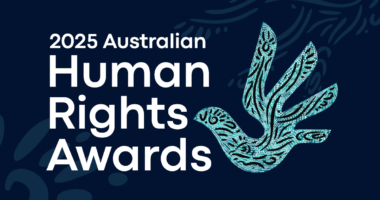A new Monash University Australian Federal Police (AFP) joint research centre will use the power of artificial intelligence (AI) to develop technology-based initiatives to support law enforcement and make global, local and online communities safer.
The new AI for Law Enforcement and Community Safety Lab (AiLECS), based at Monash University’s Faculty of Information Technology (IT), was launched as an expanded research centre today by AiLECS Co-Directors Monash University Associate Professor Campbell Wilson and AFP Leading Senior Constable Dr Janis Dalins in the presence of Monash University Interim Vice-Chancellor Professor Susan Elliott AM and AFP Deputy Commissioner Lesa Gale.
Associate Professor Wilson said emerging technologies are rapidly making information, content creation and access more easily available, with equal potential to be used for deviance or social good.
“We are currently witnessing the age of AI, we have already seen how newer technologies are being misused, leading to increased cyber attacks, identity theft, exploitation and misinformation,” Associate Professor Wilson said.
“Our research at AiLECS harnesses machine learning, natural language processing, network analysis and other techniques to support law enforcement in countering child abuse material, detecting and classifying illegal firearms, recognising misinformation and analysing large online criminal networks.
“While building these AI support systems we are focused on ensuring the datasets used to train our algorithms are ethically sourced because it is important to ensure AI used for the greater good is also produced responsibly.”
AiLECS began as a research lab in 2019 and has since initiated several projects to improve community safety and support law enforcement.
Monash University Interim President and Vice-Chancellor Professor Susan Elliott AM said the new AiLECS research centre was a strong example of technological expertise leading the way in creating resilient and responsible initiatives towards fostering safer, thriving communities.
“The combined strength of our research along with the applied expertise of a national agency like the AFP is already setting a global benchmark of how we can harness AI for the greater good,” Professor Elliott said.
In addition to AI and technology scientists from Monash University, the new research centre also includes representatives from the AFP and other experts with extensive experience in law enforcement, including Professor Jon Rouse APM, a pioneer of countering child exploitation and former head of the world-renowned ‘Taskforce Argos’ in the Queensland Police Service.
AFP Deputy Commissioner Lesa Gale said the collaboration was vital for helping law enforcement agencies to disrupt tech-savvy criminals, who were increasingly using technology to facilitate illegal activities that presented national security, social and economic challenges.
”Our partnership with Monash University is an exceptional example of how we can adapt to the criminal challenges we are facing, but also provide the public with assurances that they need and deserve in relation to privacy concerns, AI and machine learning,” Deputy Commissioner Gale said.
AiLECS Co-Director, AFP Leading Senior Constable Dr Janis Dalins, said it was critical for police across the globe to be active participants in emerging technologies.
“Through this collaboration we are able to combine global first research initiatives in AI and machine learning with law enforcement expertise and principles. We aim to be a voice for ethics and accountability in AI,” Dr Dalins said.
As an example, under AiLECS Lab’s ongoing Project Metior Telum, Monash researchers and the AFP along with an industry partner have used photogrammetry and 3D scanning to construct a digital library of firearms, enabling the rapid development of next generation tools for detecting and combating firearms trafficking.
“Metior Telum is an important illustration of where collaboration can take us. We can trace every element of our library, from ownership to specific models,” Dr Dalins added.
The AFP, through the Commonwealth Confiscated Assets Account, has expanded the AiLECS Lab’s activities under a four-year funding program. Monash University has also contributed to the expansion.
The launch was followed by action-focused panel discussions on combating the surge of child exploitation featuring distinguished speakers who are deeply connected with the subject, such as Australia’s eSafety Commissioner Julie Inman Grant, advocates Grace Tame and Hetty Johnston, and International Centre for Missing and Exploited Children Australia CEO Anna Bowden, among others.
AiLECS Co-Directors Monash University’s Associate Professor Campbell Wilson and AFP Leading Senior Constable Dr Janis Dalins are available for interviews.
See the media kit for:
- Video from AiLECS Centre launch including
- AFP Deputy Commissioner Lesa Gale's speech
- Monash University Interim Vice-Chancellor Professor Susan Elliott’s speech
- AiLECS Co-director Leading Senior Constable Dr Janis Dalins’ speech
- B-roll
- Group photos from the press conference
To learn more about AiLECS, please visit: https://ailecs.org/
MEDIA ENQUIRIES
Teju Hari Krishna, Monash University
T: +61 450 501 248 E: [email protected]
For more Monash media stories, visit our news and events site


